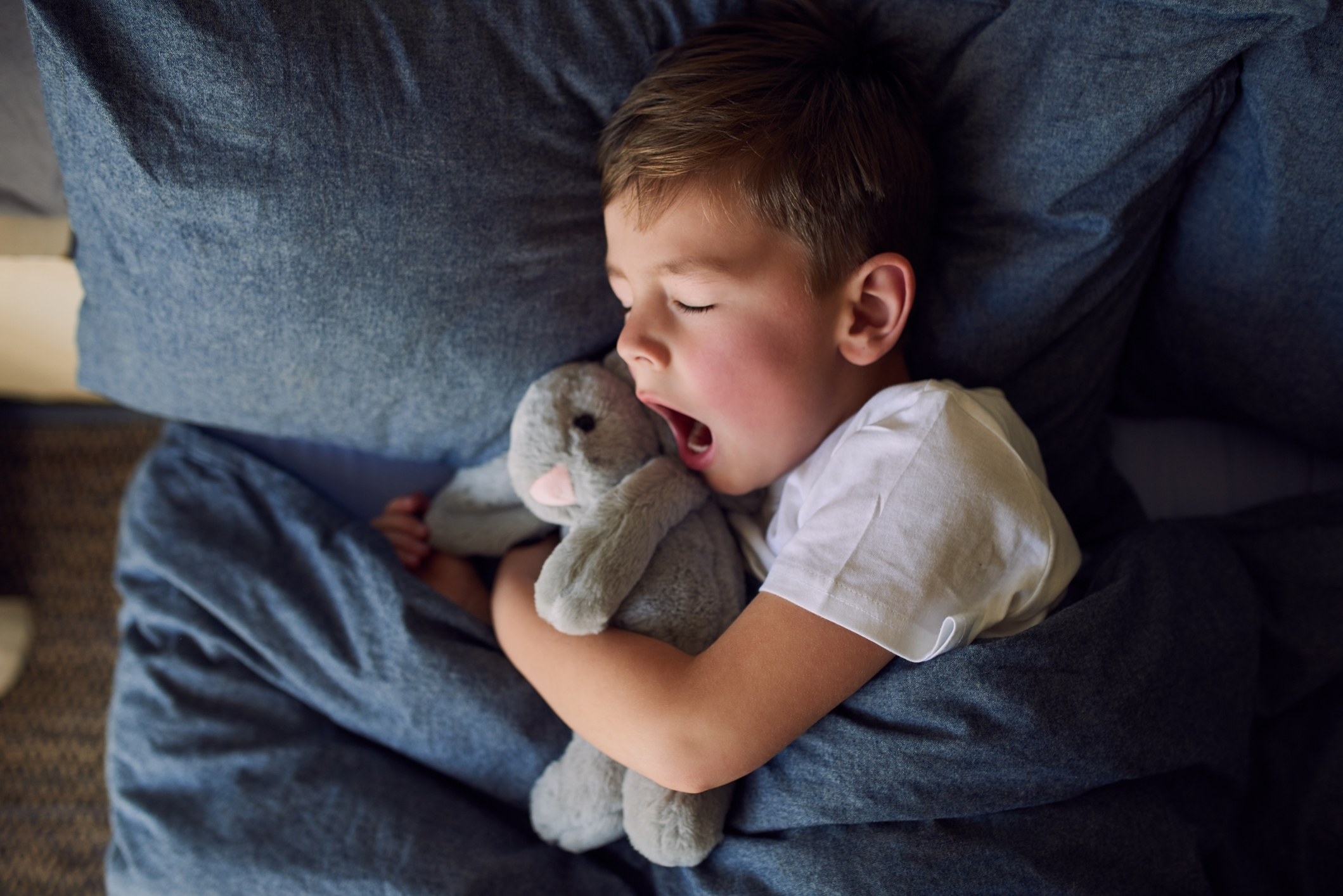The way you sleep affects every moment of your waking hour, from the way you feel and look to how you perform your daily actions, but it’s especially critical for babies and children. Sleep not only restores energy in infants and young ones, but it also helps in physical growth, builds the body’s immune system, brain development, learning, memory, and information processing capabilities. A continued lack of sleep deprives children of the energy they need to be well adjusted, focused, and happy. Prioritising children’s sleep health is essential for long-term well-being.
How much sleep do children need to improve their sleep health?
A lack of enough shut-eye can really affect how children feel the next day as sleep is incredibly healing and restorative. To begin with, it’s important to understand the age-appropriate sleep requirements—improving sleep habits in children starts with knowing the recommended hours. The amount of sleep required differs based on a child’s age. Newborn babies, for example, need as much as 16-18 hours of sleep. A one-year-old needs about 13-14 hours, including night sleep and two day-naps. A six-year-old needs anywhere from 10-11 hours.
Teaching your baby to learn to sleep without any unhealthy sleep crutches or unhealthy sleep associations from a very young age can make sleep much easier in the long run, setting the foundation for improving sleep habits in children early on.
The Role of Sleep Schedules in Children’s Sleep Health
Ultimately, following a schedule is a personal choice; however, it’s good to understand that humans are creatures of habit. Without realizing it, most of us run a ‘daily schedule’. We wake, eat, and sleep at approximately the same time each day. This familiar ‘schedule’ creates instinctual habits that foster healthy sleep over time. Getting your baby or child up at the same time each day resets their body clock. Avoid keeping your baby or child awake for too long in the evening, hoping they will sleep better at night or wake up later in the morning. This commonly tends to backfire since overtired children generally don’t sleep well.
But why won’t they sleep?
Life isn’t always smooth sailing, especially when you have a toddler in tow who refuses to sleep. It’s important to understand why a child is not able to sleep well. Often, we tend to get anxious and start offering all kinds of crutches like rocking, feeding, or walking to help the child get back to sleep. Over time, these associations can become bad sleep habits, resulting in multiple wake-ups and disturbed sleep for the baby and family. If a child isn’t sleeping well, mothers should work on improving age-appropriate sleep/wake schedules and setting good routines to help the baby develop good sleep-related habits. It’s also good to rule out issues like restless legs or insomnia in older children.
Nothing is working, what can I do?
If your child’s sleep troubles persist, it may be time to seek the expertise of a sleep specialist. At Auckland Sleep, we recommend a multi-specialty approach, which has proven to be highly effective in addressing complex sleep issues. Our team of specialists can guide you in improving your child’s sleep hygiene, establishing a consistent routine, and even exploring options like supplementation if necessary.
Auckland Sleep brings together a collective of experts who specialise in eight different domains of sleep health. This integrated approach ensures that your child receives comprehensive care tailored to their unique needs, helping to improve sleep quality and overall well-being.
If you’re struggling with your child’s sleep, we invite you to reach out to the friendly team at Auckland Sleep. We’re here to help you and your child achieve better sleep health, simply.


